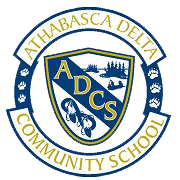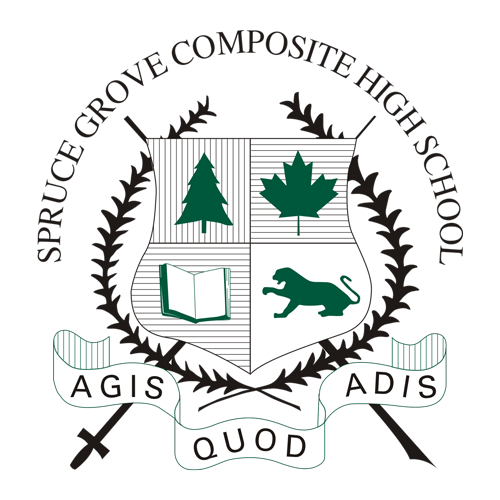AP 172: Appeal Process Regarding Student Matters
Administration of Policy and Legislation
Background
The Superintendent maintains an effective framework for appeal, with specific and mandatory alignment to Board Policy 13: Appeals to the Board, and Administrative Procedure 170: Dispute Resolution.
When differences of opinion or approach exist, it is in the best interest of everyone to try to resolve disputes as quickly and fairly as possible. A process for appeal exists for those instances when a matter is resolved in such a way that an appellant perceives greater scrutiny is required. This procedure guides the process for appeal after a resolution is presented in accordance with Administrative Procedure 170: Dispute Resolution.
Definitions
a) Adjudicator: shall refer to the individual or body of individuals, appointed or determined by the level of dispute resolution, as appointed, predetermined or designated by the Superintendent, who shall be directly responsible for determining the outcome of an appeal.
For clarity, the Superintendent may designate the process of adjudication to any individual, including:
a. A subject area specialist or professional,
b. An educational facilitator,
c. A Principal,
d. A Director,
e. A Deputy or Associate Superintendent, or
f. Any individual deemed suitable on the basis of the specific facts of the matter.
b) Appellant: shall refer to the persons (parent, guardian, or independent student) seeking resolution of a dispute.
c) Level of Dispute Resolution: shall refer to a teacher, a school administrator, a director, the Superintendent (or designate) or the Board of Trustees, who provided a resolution after fully reviewing the parent, guardian, or independent student’s concern.
d) Procedural Fairness: shall refer to the process of ensuring that parents, guardians and/or independent students are provided with a fair and unbiased assessment if an appeal proceeds to the Board, as per Board Policy 13: Appeals to the Board and/or the Education Act.
Dispute Resolution Prior to Appeal
1. An appeal process may proceed in accordance with Administrative Procedure 170: Dispute Resolution.
1.1. For clarity, the process for dispute resolution may take an undetermined amount of time, and an appeal shall only be considered necessary and valid at such time as:
1.1.1. A final resolution is provided, in writing, by any level of dispute resolution; or
1.1.2. At such time as either party, or a requested Adjudicator, has determined that the dispute resolution process exists in a stalemate.
2. The Superintendent reserves the right to appoint an Adjudicator for any matter of concern, and at any time throughout the process of dispute resolution.
Role and Responsibility of the Adjudicator
3. An individual who has authority over a level of dispute resolution may adjudicate the matter of concern presented; notably,
3.1. A person in the role of Adjudicator may make a final determination on matters of concern.
4. The Adjudicator, to whom an appeal is presented, shall ensure that:
4.1. There is no limitation of any rights provided by law or the right to other appeal processes;
4.2. The individual making the appeal receives the decision in writing without undue delay; and
4.3. The written decision includes information about the next level of dispute resolution and/or appeal where appropriate.
Appeal Principles
5. Individuals have the right to a fair process; notably:
5.1. Individuals have the right to retain, at their own initiative and expense, the services witnesses, and/or legal counsel to represent them during the appeal process;
5.2. Individuals have the right to present relevant and material information relating to the appeal;
5.3. Individuals have the right to the rationale for the original decision that is being appealed; and
5.4. Individuals have the right to be informed of Board Policy 13: Appeals to the Board, and Administrative Procedure 170: Dispute Resolution, in addition to this administrative procedure, where appropriate.
Timelines for Initiating an Appeal
6. The timeline for acceptance of an appeal and appointment of an adjudicator shall be seven (7) school days from the date of the final decision by the level of dispute resolution.
6.1. For clarity, seven (7) school days exists as the timeline for initiating, and not concluding an appeal process.
6.2. The timeline for acceptance of appeal may be increased beyond seven (7) school days if justifiable reasons for the extension exist, and as agreed to by all parties and as approved by the Adjudicator.
7. Appeals to the Minister shall be made within a reasonable time frame, and as accepted by the Minister, pursuant to s. 43 of the Education Act.
Appeals Specific to Student Marks
8. An appeal, specifically concerning student marks, shall follow the process set out in Administrative Procedure 206: Appeals Concerning Student Marks.
Appeal to the Superintendent
9. The Superintendent maintains the authority for final review of appeals on all matters except those matters that may be appealed to the Board as per the Education Act (section 43(1)), and in alignment with Board Policy 13: Appeals to the Board.
Appeal to the Board of Trustees
10. If the Superintendent is not the final authority on the matter at hand, and if the matter significantly affects the education of a student, then the process, toward resolution of the dispute may be escalated by correspondence, (email or letter) by the parent, guardian or independent student, to the Board of Trustees; notably,
10.1. The parent, guardian or independent student shall demonstrate a thorough attempt to resolve the issue in full accordance with this administrative procedure;
10.2. The Board of Trustees may hear any appeal specifically pursuant to s. 42 of the Education Act, and in which the Superintendent is not the final authority on the matter; and
10.3. Unless a matter requires a decision, on an emergency basis, an appeal to the Board received after May 31st, in a given school year, may be required to be scheduled after the start of the subsequent school year.
10.4. For clarity, student expulsion, or the provision of specialized supports and services (as per s. 43(1)), or matters significantly impacting the education of a student or child, (as per s. 43(1)), may be appealed to the Minister, pursuant to s. 43 of the Education Act.
Appeal to the Minister
11. Appeals to the Minister shall be made within a reasonable time frame, and as accepted by the Minister, pursuant to s. 43 of the Education Act.
Initiating an Appeal
12. To initiate an appeal process, an appellant shall file a statement of appeal, to a higher level of dispute resolution, in writing, within seven (7) school days after formally receiving a decision to which the appellant disagrees;
12.1. Appeals initiated beyond seven (7) school days shall include a written explanation to justify a delay in filing an appeal; and
12.2. The higher level of dispute resolution may consider the justification for delay prior to proceeding with, or terminating an appeal.
13. If the appeal is determined by the higher level of dispute resolution to be valid, then an Adjudicator shall be determined in accordance with the direction of the Superintendent.
13.1. Generally, appeals concerning classroom matters shall be adjudicated by the Principal or Assistant Principal;
13.2. Appeals concerning school matters shall be adjudicated by an individual or body appointed by the Superintendent.
14. Any request for an appeal shall be provided in writing by email or by letter:
14.1. Emailed appeals shall be sent directly to the higher level of dispute resolution, as per Administrative Procedure 170: Dispute Resolution, and Schedule 172A: Appeal Matrix and a copy shall be sent to the person whose decision is being appealed; or
14.2. Correspondence, mailed formally, may be sent to “The Office of the Superintendent” at the Centre for Education: 4603, 48 Street, Stony Plain, Alberta, T7Z 2A8.
15. If an appeal application or justification is determined by the higher level of dispute resolution to be incomplete, then a request shall be provided for any missing information.
Combining Appeals
16. If two or more appeals are determined to be related to the same matter of concern, or involve the same parties, then the appeal application may combine the appeal, or any part of the appeal.
17. With respect to combined appeals, the higher level of dispute resolution may:
17.1. Combine the appeals or any part of them;
17.2. Hear the appeals at the same time; or
17.3. Hear the appeals separately.
Withdrawing an Appeal
18. An appellant who determines that an appeal is no longer necessary shall notify the Adjudicator in writing (email or letter).
19. The written withdrawal shall include a statement, indicating that the appellant understands the withdrawal of the appeal is permanent and that the Adjudicator will determine the matter to be resolved.
Adjudicator Determination for Proceedings
20. An adjudicator, on receipt of an appeal, may
20.1. Refer the matter back to the level of dispute resolution for additional consideration;
20.2. Refer the matter to a process for mediation;
20.3. Proceed with an appeal process; or
20.4. Summarily dismiss all or part of the appeal.
20.4.1. Prior to dismissing all or part of an appeal, the Adjudicator shall inform the parties of the decision, in writing, and provide justification for the decision.
Referral to Mediation
21. If the Superintendent, or designated Adjudicator refers the matter for mediation, the Adjudicator shall contact the parties to determine a schedule and process for mediation.
22. The Adjudicator shall coordinate the details of the mediation, including scheduling and location.
23. If the Adjudicator determines mediation to be unsuccessful, the matter shall be returned to appeal or dismissal.
Appeal Pre-Hearing
24. The Adjudicator may establish a pre-hearing conference to discuss matters of concern with the appellant and prior level of dispute resolution; notably:
24.1. To clarify the issues being raised through appeal;
24.2. To identify the method utilized to hear the appeal;
24.3. To provide an estimation of time required to hear the appeal;
24.4. To establish deadlines for receiving and/or providing information pertinent to the appeal;
24.5. To determine whether or not additional expertise shall be required during the appeal;
24.6. To determine matters that shall remain private, or that may be open to the public; and/or
24.7. To clarify any matter that may assist with an expeditious resolution of the appeal.
Appeal Hearing: Formal Process
25. The Adjudicator shall determine the best approach for hearing an appeal; notably
25.1. An Adjudicator may hold any combination of a written, a virtual, or an in-person hearing; and
25.2. If the adjudicator determines that an appeal shall be in-person, then a written notice of the date, time and location and process for appeal shall be provided to all parties.
26. Appeals that are in-person or virtual shall not be recorded without the consent of the Adjudicator and all parties involved in the matter, and
26.1. Recordings, deemed to be permitted, are to be shared by all participants.
Summary Dismissal
27. At any time after an appeal is referred to the adjudicator, the adjudicator may dismiss all or part of the appeal if the adjudicator determines that any of the following apply:
27.1. The appeal is determined to be outside of the level of appeal of the Adjudicator;
27.2. The appeal is determined to be trivial, frivolous, or vexatious;
27.3. The appeal is determined to have been made in bad faith;
27.4. The appeal process was not diligently pursued by the appellant;
27.5. There is no reasonable prospect that an appeal will be successful; and/or
27.6. The substance of an appeal has been prudently dealt with through a separate proceeding.
Final Decision
28. Within seven (7) school days following the completion of a hearing, the Adjudicator shall provide all parties with a written summary of the decision;
28.1. The decision of the Adjudicator shall be deemed to be the final decision for the level of dispute resolution to which the decision was appealed; and
28.2. A notification indicating that the matter is now resolved shall be provided to the Office of the Superintendent.
29. Matters related specifically to the provision of specialized supports and services, or to the expulsion of a student, shall be finalized within ten (10) school days after the initial date of the suspension,
29.1. Appeals related to an expulsion shall proceed according to s. 43 of the Education Act; notably:
29.1.1. As per the Education Act s. 43(1): “a parent of a student or child affected by the decision, and the student if the student is 16 years of age or older, may request in writing that the Minister review the decision;” and
29.1.2. As per the Education Act s. 43(2): an appeal request “must be made within 60 days of the date on which the parent or the student, if the student is 16 years of age or older, is informed of the decision.”
30. The Adjudicator shall indicate whether the matter may be further appealed to the Board of Trustees, or to the Minister,
30.1. The Adjudicator shall ensure that the Appellant is aware of Board Policy 13: Appeals to the Board;
30.2. The Adjudicator shall provide any additional information possible, as deemed prudent, and with respect to the process for further appeal; or
30.3. The Adjudicator shall clearly indicate that no further appeal process is available by noting that the matter is resolved.























